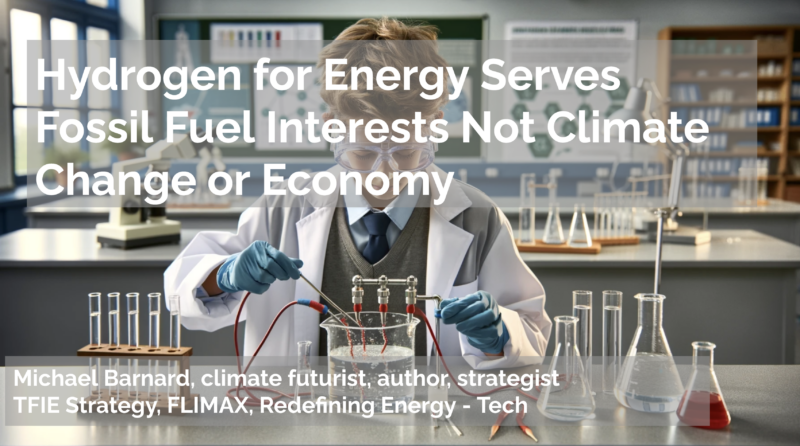Hydrogen for Energy Serves Fossil Fuel Interests Not Climate Change or Economy
The Illusion of a Clean Energy Solution
The push for hydrogen as a clean energy source has been gaining momentum in recent years, with many governments and corporations investing heavily in the technology. However, beneath the surface, it appears that the primary beneficiaries of this investment are not the environment or the economy, but rather the fossil fuel industry.
The Hydrogen Mirage
Hydrogen is often touted as a zero-emission energy source, as it can be extracted from water and used to power vehicles, homes, and industries. However, the reality is far more complex. Most hydrogen is currently produced from fossil fuels, such as natural gas and coal, through a process known as steam methane reforming. This process releases significant amounts of greenhouse gases, making it a far from clean energy solution.
Fossil Fuel Interests
The majority of the world’s hydrogen production is controlled by fossil fuel companies, such as ExxonMobil and Shell. These companies are using their influence to promote hydrogen as a "clean" energy source, while simultaneously investing in technologies that will allow them to maintain their dominance in the energy market.
Lack of Economic Benefits
While hydrogen production is touted as a job creator, the reality is that the majority of the jobs created are low-wage and temporary. Furthermore, the cost of producing and transporting hydrogen is significantly higher than traditional fossil fuels, making it an uneconomical solution for many industries.
Climate Change Concerns
The most significant concern surrounding hydrogen as a clean energy source is its potential to delay the transition to renewable energy. By investing in hydrogen infrastructure, governments and corporations may be diverting resources away from more effective solutions, such as solar and wind power.
Conclusion
The push for hydrogen as a clean energy source serves the interests of the fossil fuel industry, rather than the environment or the economy. While it may offer a temporary solution to reducing emissions, it is ultimately a Band-Aid on a bullet wound. In order to truly address the climate crisis, we must focus on transitioning to renewable energy sources and reducing our reliance on fossil fuels.
FAQs
Q: Is hydrogen a clean energy source?
A: No, most hydrogen is currently produced from fossil fuels, making it a dirty energy source.
Q: Who controls the majority of the world’s hydrogen production?
A: Fossil fuel companies, such as ExxonMobil and Shell.
Q: Is hydrogen production a job creator?
A: Yes, but the majority of the jobs created are low-wage and temporary.
Q: Is hydrogen a cost-effective energy source?
A: No, the cost of producing and transporting hydrogen is significantly higher than traditional fossil fuels.
Q: Will hydrogen infrastructure delay the transition to renewable energy?
A: Yes, by investing in hydrogen infrastructure, governments and corporations may be diverting resources away from more effective solutions, such as solar and wind power.


_2.png?w=150&resize=150,150&ssl=1)
_1.png?w=150&resize=150,150&ssl=1)

_1.png?w=150&resize=150,150&ssl=1)
_1.png?w=150&resize=150,150&ssl=1)
